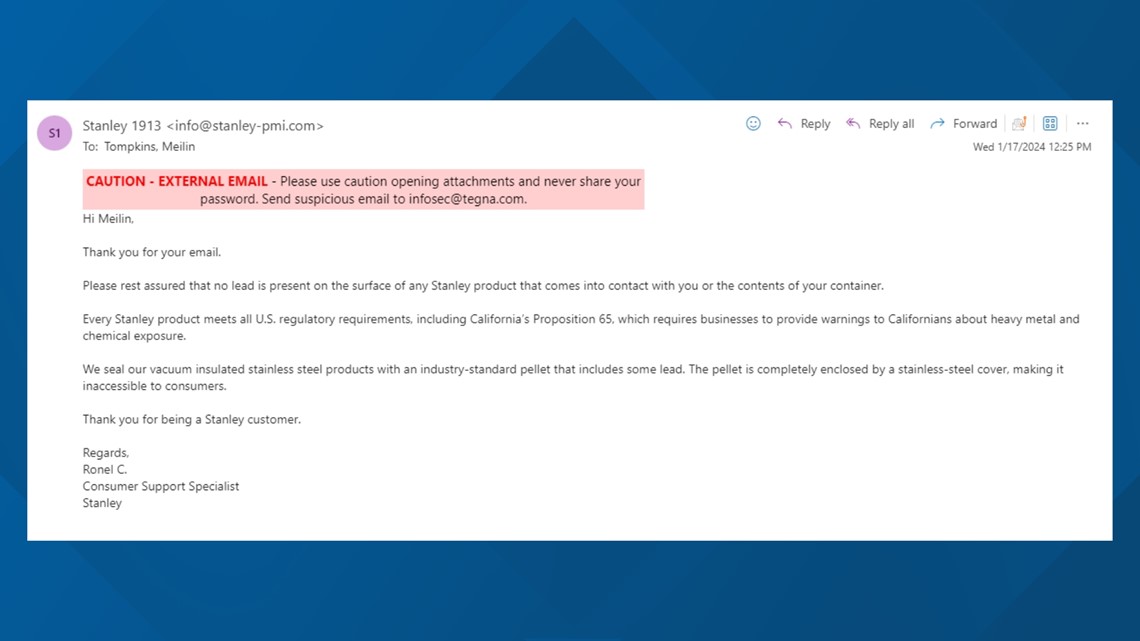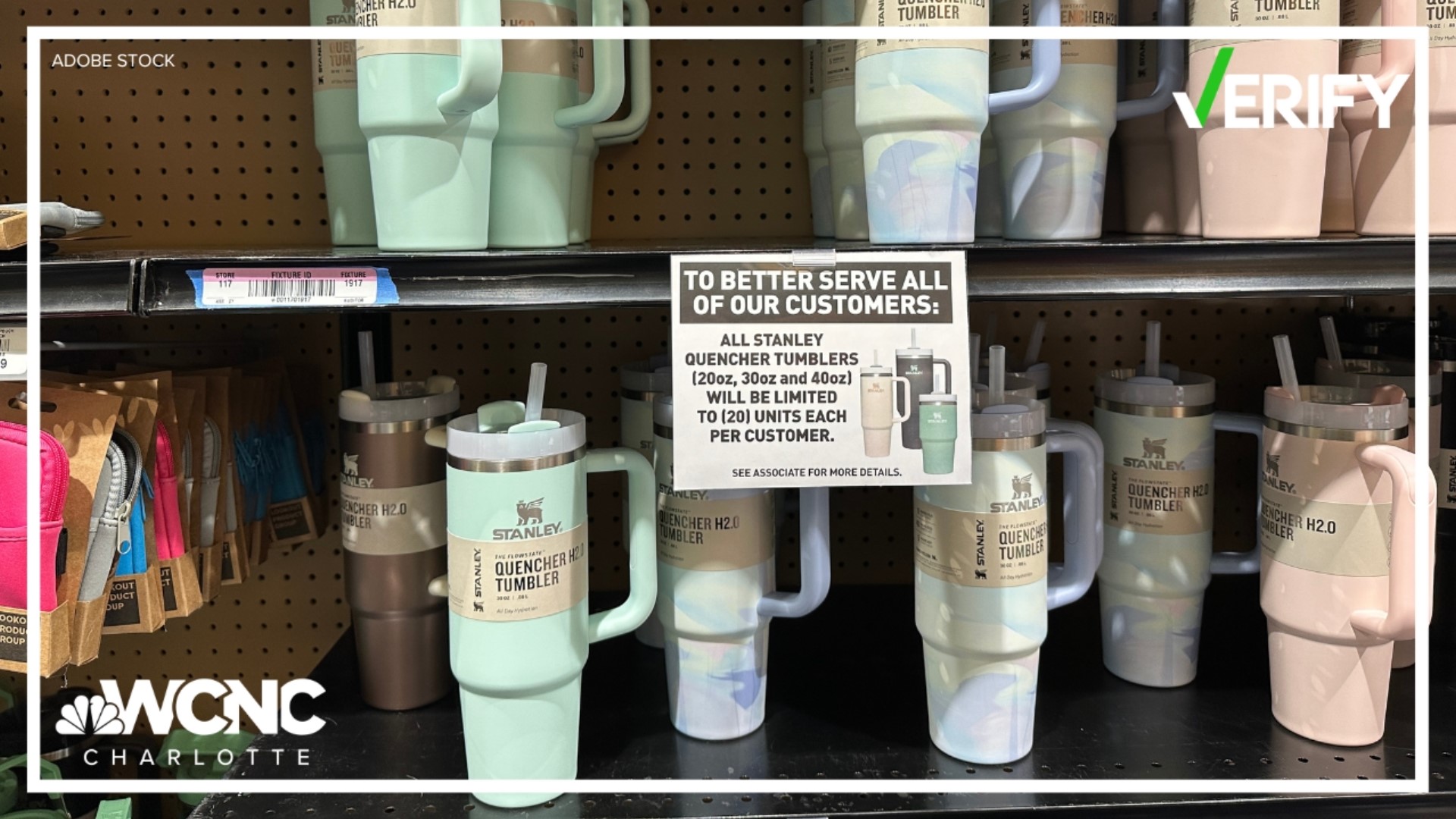CHARLOTTE, N.C. — Take a quick trip down to your local supermarket and you’ll likely spot a shopper carrying the extremely popular Stanley cup.
The giant mugs have become quite the social media talking point, sparking memes, fan clubs and fierce debates online. But there are other concerns about the cups that TikTok made famous.
THE QUESTION
Do the Stanley tumblers have lead in them, and are they safe to drink out of?
THE ANSWER
Yes, Stanley tumblers are sealed with a small trace of lead in their insulated cups, but the lead is completely enclosed by stainless steel and does not come into contact with your drink.
THE SOURCES
WHAT WE FOUND
In an email to WCNC Charlotte's Verify team, Stanley stressed their cups meet all U.S. regulatory requirements. They said no lead is present on the surface of any Stanley product that would come into contact with your beverage.


However, Stanley did say it seals its insulated products with an industry-standard pellet that includes some lead. Stanley said the pellet is completely covered and enclosed by a stainless-steel cover, making it inaccessible to consumers.
But what are the health implications for someone who comes into contact with lead?
Dr. Karla Robinson said lead is a naturally occurring element that’s even found in soil. But in this case, “natural” doesn’t equate to “healthy.”
"With exposure over time, you can certainly find some serious health effects if that exposure is repeated, and at high levels," Robinson said.
The average person is probably exposed to a little bit of lead every day, according to Robinson. Lead exposure is measured by how many micrograms per deciliter are in your bloodstream.
"The average lead level is somewhere less than 10 for adults," she said. "And so we do have some exposure on a regular basis, and that's something to be expected.
Robinson also said it's highly unlikely you'll be exposed to enough lead worry about lead poisoning.
"The important thing to know is that it's chronic high levels of exposure that could potentially cause the harm and that's something that most people with average risk aren't going to have as an adult," she said.
WCNC Charlotte's Verify series is all about trying to make a difference in the Carolinas by making sure the community has the correct information. WCNC Charlotte outlines concisely what we know and what we don't know. Sometimes the answer can be surprising. Watch previous stories where we verify social media claims in the YouTube playlist below and subscribe to get updated when new videos are uploaded.
VERIFY is dedicated to helping the public distinguish between true and false information. The VERIFY team, with help from questions submitted by the audience, tracks the spread of stories or claims that need clarification or correction. Have something you want VERIFIED? Text us at 704-329-3600 or visit VERIFY.

